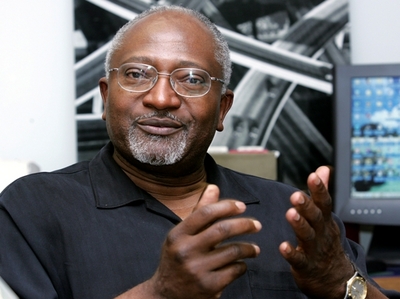The American society is largely divided between individuals with cars and those without cars, creating a form of "transportation apartheid" in many our cities and metropolitan regions. According to the 2003 national study, Moving to Equity: Addressing Inequitable Effects of Transportation Policies on Minorities, only 7 percent of white households own no car, compared with 24 percent of African American households, 17 percent of Latino households, and 13 percent of Asian-American households. Nearly 35 percent of Black Atlantans do not own cars compared with less than 10 percent of whites. Clearly, private automobiles provide enormous employment access advantages to their owners. Having a car in Atlanta can make the difference between employment and unemployment.
The economic isolation of Black Atlanta is complicated by inadequate public transit (limited, unaffordable, or inaccessible service and routes, and security and safety concerns), lack of personal transportation (no privately owned car available to travel to work), and spatial mismatch (location of suitable jobs in areas that are inaccessible by public transportation). Addressing transportation equity in Metro Atlanta will have positive impacts beyond improved mobility and access to opportunity, but will have added health benefits by reducing deadly air pollution, decreasing automobile dependency, and shrinking the region's carbon footprint mitigating climate change.
When the Metropolitan Atlanta Rapid Transit Authority(MARTA) was conceived in the 1960s and began operation in the 1970s, many whites jokingly referred to it as "Moving Africans Rapidly Through Atlanta." The system was originally conceived to cover five counties (Fulton, DeKalb, Cobb, Clayton, and Gwinnett). Only Fulton and DeKalb residents voted to join MARTA and pay the one-cent sales tax. Atlanta city residents pay eight cents on a dollar in sales tax: four cents for the state, three cents for Fulton and DeKalb, and one cent for the City of Atlanta's water treatment fund.
MARTA is the ninth largest transit system in the country and the only large system that does not receive any significant financial support from the state. Since 1998, MARTA has had to dip into its reserves almost every year to make up budget shortfalls. In 2007, MARTA received no state funding for its $455.9 million operating funds and only $2.7 million (2 percent) of the agency's $195.2 million total capital funds. MARTA is required to use 50 percent of these funds on capital projects and 50 percent on operations. As a result, $65 million in MARTA revenues the agency desperately needs to operate the system sits in reserve accounts.
Only Fulton and DeKalb County residents pay for the up keep and expansion of MARTA with a one-cent sales tax. The regular one-way fare on MARTA is $2.00, up from $1.00 in 1992. MARTA is projected to have a $588-$634 million shortfall over the next decade. The allocation of $25 million of 2009 federal stimulus funds from the Atlanta Regional Commission (ARC) regional transportation projects allowed MARTA to temporarily soften the impact of some of the budget cuts. MARTA's FY 2011 budget has a $120 million projected operating gap, up from $109 million in FY 2010.
Because of this serious financial crisis, MARTA officials are warning of slashing one quarter of its service. Just this month, the Atlanta City Council passed a resolution asking Governor Sonny Perdue and the Georgia Legislature to take immediate steps to address the MARTA funding shortfall. Earlier this month, the Georgia Senate passed S.B. 120 which removed all restrictions on the use of the sales tax. The House passed a version that gives MARTA access to only 60 percent of the money. MARTA officials distributed to state lawmakers a memo raising the possibility that it would have to cut rail service on "either certain days or times, or entire line altogether" if the Legislature doesn't pass a bill that lets the agency use more of the funds raised by sales taxes toward operations.
(Note: You can view every article as one long page if you sign up as an Advocate Member, or higher).





